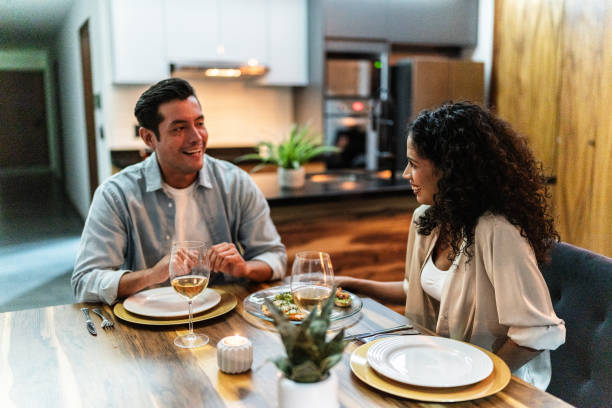
In the intricate dance of love and connection, relationships often mirror a delicate balance that requires constant attention and nurturing. One crucial aspect of this intricate bond is the Emotional Bank of your couple’s relationship. Much like a financial institution, this emotional bank plays a pivotal role in determining the overall health and longevity of your connection with your partner.
We want to believe that we are either contributing to the emotional bank or not when, in actuality, there will always be times when we have to make a withdrawal. Whether we are asking our partner to sacrifice because of our situation or relying on positive reserves to float the relationship when we are experiencing times of unmet needs, there are always situations in which withdrawals will happen. The key is to keep these as few and far between as you can and to be instead working on growing or sustaining what is already invested.
What is an Emotional Bank?

The Emotional Bank serves as an abstract repository where partners deposit and withdraw emotional currency. It encompasses the feelings, trust, and emotional support exchanged between individuals in a relationship. Every positive interaction, act of kindness, or display of empathy adds to the balance, creating a reserve that sustains the relationship during challenging times. Conversely, negative interactions, unmet expectations, or instances of emotional withdrawal can deplete this bank, potentially jeopardizing the foundation of the relationship.
3 Ways to Foster Your Relationship
1) Effective Communication:
Clear and open communication is the cornerstone of a healthy Emotional Bank. If you are relatively young, you may be new on the journey of relationships and unsure of how to foster healthy relationships while you are still figuring out and expressing who you are. If you have been through a few relationships, you may have experienced negative responses to previous attempts to communicate your wants and needs to a partner. Gaslighting, emotional withdrawal, high tempers, and more can show up in relationships where one partner doesn’t want to accept responsibility for their actions or work with their partner to establish effective and safe communication.

For communication to be effective, it has to come from a place of honesty, safety, and trust. When you or your partner share what is on your hearts and minds, you have to know that the other person is willing to understand, just as you are willing to be understood. When communicating about a difficult issue effective communication is about setting yourself up as a team working against a problem rather than against one another. Remember that non-verbal communication, such as facial expression and body language, can say one thing even if your words say another. Effective communication is so much more than just the words you say.
Ensure that you actively listen to your partner’s thoughts, feelings, and concerns without judgment. It can be easy to listen, respond, and operate from a place of defensiveness. This happens because we don’t want to consider that we might be hurting the other person’s feelings, neglecting their needs, or forgetting their wants. It’s human nature to want to feel as though we are doing our best and succeeding at the things we find important.
Communication is a two-week street; you also have your share of talking to do. Expressing your needs and emotions constructively helps avoid misunderstandings and builds a strong foundation of trust. It is simply not enough to expect your partner to be able to guess what you want, what makes you unhappy, and how you’re feeling. Communicating your thoughts and feelings is about setting your partner up for success. Ask yourself what it is you hope to get out of the conversation. Consider how best to achieve that. For example, if you want your partner’s undivided attention, it is best to find a time when you both are not in the middle of a task. If you need help solving a problem, approach your partner by saying, “Hey, I value your opinion; Do you feel able to help me solve a problem?.” Likewise, if the last thing you want is for your partner to jump in with possible solutions, you could open with, “I’m having a tough time, and I just want to be heard and comforted. Are you available for that?”
Try to imagine for yourself how you would most like to be communicated with. When expressing frustration with something in the relationship, be sure to take responsibility for yourself and utilize statements about yourself and your feelings rather than assigning blame. “When the dishes are left next to the sink instead of loaded into the dishwasher, I feel that my time isn’t seen as valuable.”
Communicate about what is working, as well! “I have noticed that you did x for me recently, and it made it so much easier to achieve…” If you are trying to set a routine that works well for both of you, don’t assume no news is good news. Share that something was great, helpful, or convenient!
Beyond the communication that goes into navigating your relationship, your schedules, planning errands, and more, communicate about other things: watch a film together and talk about it afterward. Fill each other in about goings-on at work so that you can each understand what the other might be experiencing during the day. Pick a reality TV show to gossip about together or read the same book. Give yourselves opportunities to talk to one another with date nights, a time when you put electronics aside, and adults-only evenings (if you have children, you are balancing as well).
2) Acts of Kindness and Appreciation:

Simple gestures like leaving a heartfelt note, surprising your partner with their favorite meal, or expressing gratitude for their efforts contribute to the emotional well-being of the relationship, strengthening the bond between you two. Hearing some of these sweet stories is a definite perk of being a marriage counselor in Woodland Hills. Acts of kindness are a great way to bolster the emotional bank.
Strong communication nurtures acts of kindness and appreciation; the other person cannot be expected to read your mind. Yes, there are some things about you that can be ascertained through observation. But other things might require you to be direct about your likes and dislikes. It is nothing to be ashamed of to arm your partner with the information and ability to make you happy and to avoid hurting your feelings or making a misstep. We learn about one another through sharing; you and your partner both deserve to be known and loved honestly.
Small acts of thoughtfulness are about so much more than the time or effort it takes to do them. Yes, that is important. But what will typically strike a person the most is the understanding these small acts show. For example, picking up your favorite flowers, pastry, candy bar, or other small token is as much about knowing which is your favorite as it is about doing it. Complimenting you about something you value about yourself will mean more than complimenting you about something you don’t value as very important.
Acts of appreciation aren’t only about noticing what your partner gets right. If you find yourself committing acts of kindness and don’t feel that you are having those habits reciprocated, consider if your partner has a different love language than you do. Sometimes, we make the mistake of only seeing the acts of kindness that we relate to. For example, if your love language is words of affirmation, you may tell your partner how you feel, pay them compliments, and so on. They may not respond the same way, and you might begin to feel that they aren’t showing you the kindness and appreciation you are showing them. However, if their love language is acts of service, they may be showing you these acts of love in other ways, such as preparing your morning coffee, filling your gas tank, cleaning up, repairing things, and more. Couples can show one another appreciation by paying attention to how their partner is showing love and validating that. This is not to say that you can’t both work on speaking the other person’s language; making an effort to show up for your partner in the way that means the most to them can go a long way. We hear this often in our Woodland Hills couples therapy sessions. Do your best to understand how your love language influences the way you show up for one another and how you communicate your love with one another.
3) Emotional Responsiveness:

Being emotionally responsive means tuning into your partner’s emotional needs and providing support when required. Celebrate their victories, offer comfort during challenging times, and be present in both joy and sorrow. This responsiveness builds a sense of security and intimacy, creating a positive emotional balance in the relationship. Communication is a great skill to have, but being responsive is how you make the most of that communication. How you react to each others’ highs and lows impacts how you feel in your relationship.
One of the most amazing things about a partnership is having someone to celebrate your wins with. Yes, it’s always nice to have someone there who can comfort and care for you. But being able to set aside energy and focus on experiencing the other person’s joy with them is a true game-changer when it comes to happy and healthy relationships. If you met the star of your favorite movie from when you were in high school, your instinct might be to call your friend who also loved that show. If you achieved something in a hobby or sport that you have in common with a parent, they might be the person you pick up the phone to share the news with. But by and large, you will be sharing your victories with your partner, as you will spend the most time with them. If they’re not the ones you can’t wait to tell your success stories to, consider why that is and if it requires a conversation.
To have each person feel safe and valued and have a sense of empowerment, they must both give and benefit from emotional responsiveness. There will be times when one person’s needs have to take center stage and others when the other person’s needs are the number one priority. Equal labor when it comes to emotional responsiveness is about finding a balance. Whether you attend therapy in person or online marriage therapy, a neutral third-party, such as a therapist, can help you to see the whole picture of your relationship. Couples therapy is a safe space for couples to develop the tools to attune to one another, to express their emotions, and to respond to those expressions.
Something we see here in couples therapy in Woodland Hills is that individual work can be required in order to show up and be emotionally available for a partner. This means identifying your triggers, pain points, natural instincts (both positive and less positive), thought patterns, behaviors, and more. Two individuals who are struggling cannot make a strong and confident pair. If you discover, through couples counseling, that you need time in one-on-one therapy, embrace that opportunity.
You cannot be emotionally responsive without being emotionally invested, and you cannot invest without being available. Therefore, your work to be available sustains your investment. Being emotionally available doesn’t mean that you are okay with any kind of treatment; it’s not about not having a life and needs of your own. What it means is that you can access space for the other person. You can think of them and their needs, even when they’re not around. You have a goal to be there for them, and you have enough in your tank to do so. Your partner should have an equal amount of care and effort for you.

Like all investments, the emotional bank of a relationship will go through soaring times and times of more withdrawals than deposits. If you and your partner both care about the status of your relationship and are taking time to check in on how you are doing, you are off to a great start when it comes to fostering your connection. Pay attention to how often you set aside time to communicate with one another; pay attention to how you structure your conversations. Are you both focused on the topic at hand? Do you have the game goals in mind? Have you created time and space to put aside distractions and listen to one another with open hearts? Are you both ready to be there for one another? Do you have a game plan for misunderstandings, times of extra stress, mistakes, and so on? At the end of the day, remaining connected is about teaming up to face the world together. Each of you has a role to play in protecting the relationship and continuing to invest in your future together.
Couples Therapy In Woodland Hills
By the time you feel ready to seek marriage counseling as a couple, you may feel defeated or hopeless about the future of your relationship due to past unresolved conflicts, lack of trust or intimacy. With Couples Therapy in Woodland Hills, CA, our Gottman-trained couple’s counselors will guide you to map out the strengths and the weaknesses of your relationship so that you two can learn relationship skills that will help you and your partner be more vulnerable, emotionally open, and flexible. Contact us today for your complimentary 20-minute phone consultation with our Admin Team today!




